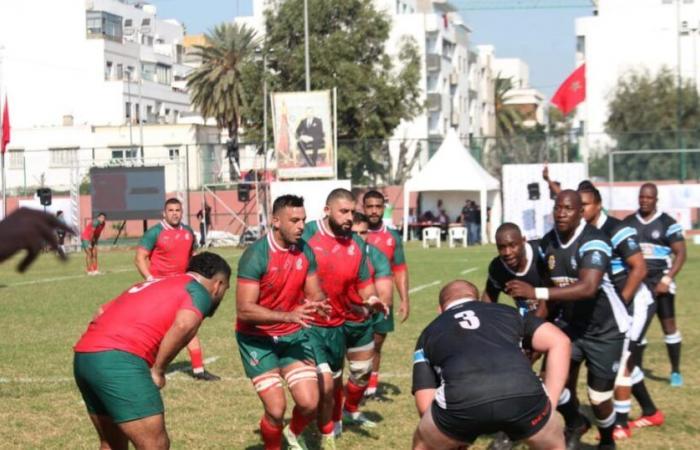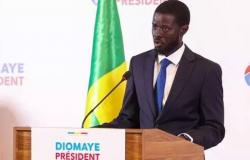
The international Rugby tournament, organized by the FRMR, achieved its objective, with Morocco qualifying for the next round. And in a beautiful way. The nationals finished first in the group with two great victories against Botswana 64-0 in the opening match and 53-37 in the final against Madagascar.
The pretty COC stadium, venue of the meetings, had not seen matches of the national oval ball team for five long years and this return to the forefront could only rejoice the many fans of this sport in Morocco . The festival of tests, the fruit of great performances from the attacking pack and the speed of the wingers, allowed spectators to reconnect with the joy of a not so distant past. We even saw a few tears rolling down the cheeks of former players, seemingly strong, but with sensitive hearts, at the end of the tournament.
Rugby in Morocco is emerging from a long period of lethargy during which all the ingredients of failure accumulated: bad governance, personal conflicts, the intrusion of politics into sporting affairs, incompetence and the break with the international environment. Its leaders have forgotten what constitutes the foundation of Rugby, its human values based on education, family spirit, humility and the absence of personal ambitions.
Born within the university of a town in England that bears its name, Rugby aims to embody integrity in sport, that is to say a subtle blend of honesty and fair play. The players give everything on the pitch, without restraint, and ultimately comply, without batting an eyelid, with the referee’s decisions.
In this sport, more than in others, the winners respect the losers and the latter congratulate their opponents in a festive spirit of camaraderie. Rugby develops team spirit and values the collective, it is based on discipline, courage and self-sacrifice.
Encouraging rugby means instilling precious values in Moroccan society. They are in line with the ambitions that we all have for the country. We have neglected them a little, while paradoxically, Morocco could count on sure values on site and abroad.
In addition to having given talented players to the national sport, Moroccan rugby has produced quality leaders. They have stood out on the national scene in sports, in the business world and through their social actions. Two, among a slew of Moroccan executives, have made the screen by distinguishing themselves internationally.
The first of them, Aziz Bougja, particularly distinguished himself on the African scale. Through his activism and a permanent presence on the field, he has largely contributed to the influence of Morocco through rugby. The former COC player first served as president of the Royal Moroccan Rugby Federation before running for the position of President of Rugby Africa, which he helped create. Under his presidency, the number of countries involved in rugby increased from 6 to 32. An assessment which today gives it a special status on the continent and with international bodies.
The second, better known and more famous, is undoubtedly Abdelatif Benazzi, the former player of the Union Sportive d’Oujda. He had a very good playing career abroad, with a remarkable career in the French team after a change of sporting nationality. Under the tricolor colors, he quickly established himself to become the captain that everyone respects. A man of value who never denied his country of origin and even less his hometown even if we can blame him for a slight distancing, at the height of his career, from Moroccan rugby. He probably did not want to interfere in the problems of the federation, we can understand that.
He ran for the presidency of World Rugby with the enviable status of favorite. He defended another idea, more democratic and more conquering of rugby, today in the exclusive hands of the powers of this sport. Unlike FIFA where each member country has one vote, World Rugby gives pride of place to the powers.
The federations of the six European nations, England, Scotland, Ireland, Wales, Italy and France and those of the Southern powers: Argentina, Australia, New Zealand, Fiji and South Africa have three votes each, Uruguay, Romania, Georgia and Japan, considered intermediate powers, are entitled to one vote, while the rest of Africa only has two votes.
Abdelatif Benazzi wanted to gradually tackle this injustice and had the support of Europe and other southern countries, represented by their confederations. Their voices were promised to him, two of them he missed. It is a source of controversy and regret: for Morocco first and for the popularization and promotion of Rugby in the world. By losing, Benazzi still scored points: an African sits on the Executive Committee today, the Ghanaian Mensah.
He’s not going to stop there. He is already positioning himself for the next elective assembly with probably a greater presence on the ground so as to leave nothing to chance in the future. This bodes well, national rugby, with such assets, can begin to see the future with optimism again. When the family spirit returns, everything becomes possible again.





